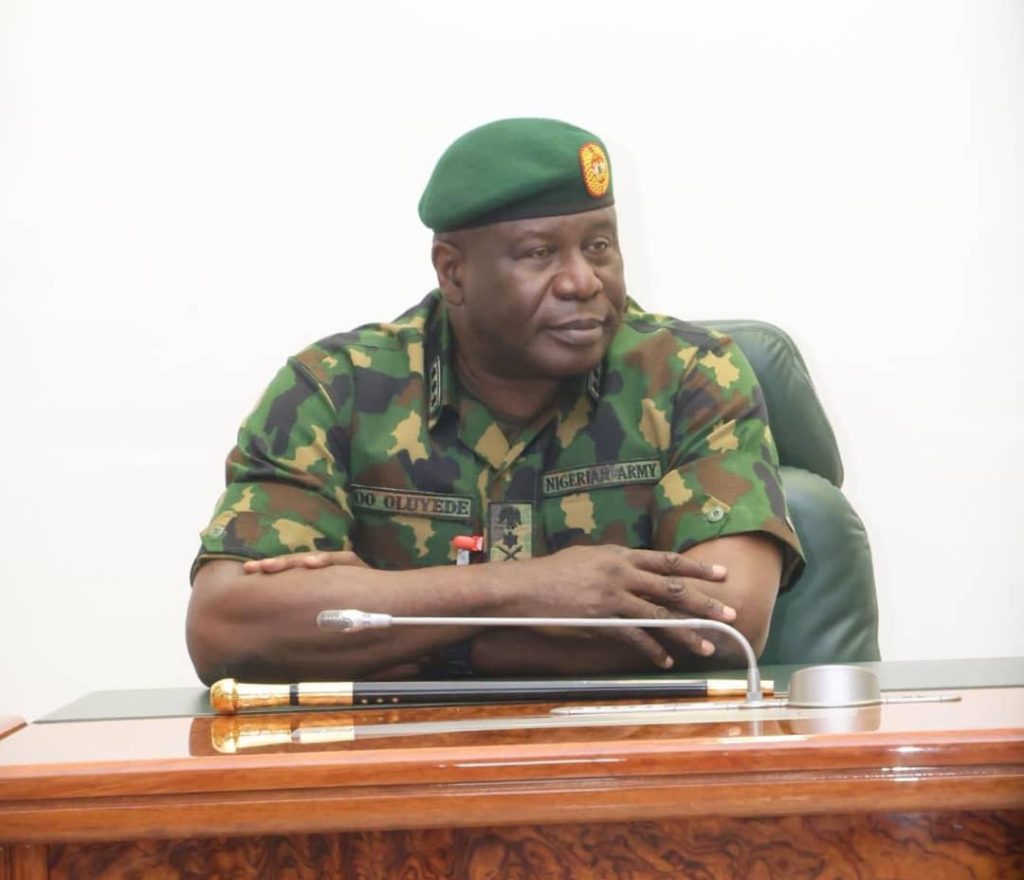NASFS and Nigeria’s battle to forge warriors against insecurity

By Evelyn Usman
The foundation-laying of the Nigerian Army Special Forces School NASF) in Doma, Nasarawa State, on August 15,2025, was more than a routine military exercise.
For the Chief of Army Staff, Lieutenant General Olufemi Oluyede, it was a symbolic moment that underscored the urgency of Nigeria’s security challenges and the need to prepare soldiers for the unconventional battles of tomorrow.
“This is about building unconquerable warriors, capable of dominating the battlefield in all its complexity,” Oluyede said, describing the new school as a decisive step towards reshaping the Army’s capacity to confront insurgency, banditry and terrorism. The occasion, he stressed, was not just ceremonial but a clear statement of intent and a glimpse into the future direction of the Nigerian Army.
Shifting theatres of war
For more than a decade, Nigeria’s security crisis has unfolded in cruel diversity : insurgency in the Northeast, banditry in the Northwest, kidnappings along highways. Nigeria’s security forces continue to face an elusive adversary, one that strikes from the shadows, disappears into forests and blends into local communities. This asymmetry has become the country’s biggest challenge that leaves a conventional Army struggling against an unconventional enemy. It is in this shifting theatre that NASFS becomes not a luxury but a necessity. The Chief of Army Staff explained that NASFS“is Nigeria’s decisive response to the changing face of war, a school built for unconventional battles, where our soldiers will learn to survive ambushes, hunt down insurgents, dismantle terror cells, and turn the enemy’s weapons against them.”
Why Doma?
The relocation of the NASFS from Buni Yadi in Yobe State to Doma in Nasarawa is said to be more than a change of address but a strategic statement. This is because Buni Yadi, once defined by insurgency battles, now serves as the Army’s Acclimatisation Centre for toughening troops bound for the Northeast. Doma, on the other hand, offers what the future demands: centrality, accessibility, and terrain fit for shaping the Army’s next generation of warriors. It is also a pragmatic choice. Nasarawa, long vulnerable to banditry, now stands to host one of the Army’s most critical forward investments. Governor Abdullahi Sule, in receiving the project, was frank as he declared that without military intervention, the state’s farming and mining lifelines might have collapsed. He asserted that there could be no growth, no livelihood, and no development without security as the bedrock.
Forging Nigeria’s own SEALs
Special Forces are never about numbers but quality. Only the toughest survive. These are soldiers who march for miles under crushing loads, dive into rivers with rifles strapped to their backs, and fight after days of hunger and exhaustion , yet, still with precision. America reveres its Navy SEALs, Britain its SAS, Israel its Sayeret Matkal, Russia its Spetsnaz. Nigeria, too, now seeks to fashion its own: warriors for the Niger Delta swamps, Zamfara forests, Borno deserts, and Lagos streets. The timing could not be more urgent. Insecurity has turned villages into ghost settlements, highways into fear zones, and communities into captives of armed gangs. The NASFS according to the COAS, promised to reverse that tide by producing soldiers trained not to respond slowly but to strike swiftly, surgically, decisively. He said: “This school is not just about today. It is about tomorrow. We are committed to delivering world-class training and equipment so that our Special Forces remain unconquerable and at par with their global counterparts.”
Between symbolism and reality
At Doma, alongside the foundation stone, Oluyede also commissioned four Special Forces Command Headquarters and a new Officers’ Mess. Yet these buildings were not mere structures; they were symbols. Symbols of a military seeking to rediscover pride, of troops whose sacrifices must be honoured with more than words, and of a community that now embraces its role as host to Nigeria’s most ambitious security project. But symbolism alone will not win battles. Special Forces training demands investment in technology, weaponry, intelligence, and constant adaptation. Without sustained funding, NASFS risks becoming another monument in a country too familiar with abandoned dreams. Analysts warn that the school must remain shielded from politics and underfunding if it is to truly become the engine of Nigeria’s security renaissance.
The covenant of Doma
Ultimately, NASFS is more than uniforms and drills. It is about farmers returning safely to their fields, children attending classrooms without fear, traders moving freely along once-dangerous roads, and families reclaiming markets taken by bandits. It is about hope—fragile when ignored, unbreakable when nurtured. As General Oluyede planted a tree to mark the day, the act carried metaphor: growth, resilience, continuity. Just as the roots must hold firm in Doma’s soil, so too must the vision of NASFS take root in Nigeria’s defence architecture. The message from Doma is unmistakable: Nigeria is tired of bleeding. The Army is tired of burying its bravest. Citizens are tired of living in fear. NASFS is both a promise and a covenant : that never again will the nation fight with blunt weapons, but with sharpened swords; that in training fearless fighters, Nigeria might yet secure its survival.
The post NASFS and Nigeria’s battle to forge warriors against insecurity appeared first on Vanguard News.

 yarkarkara
yarkarkara 





